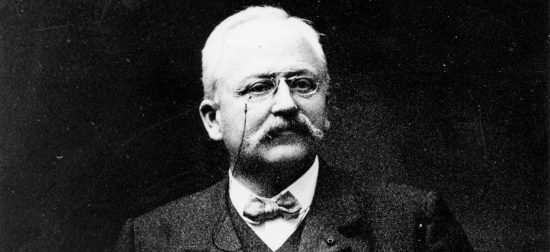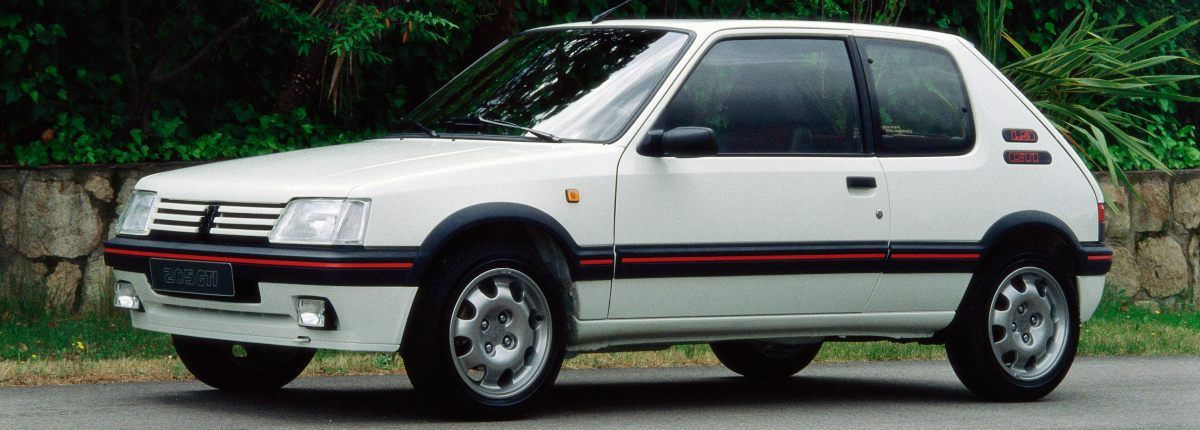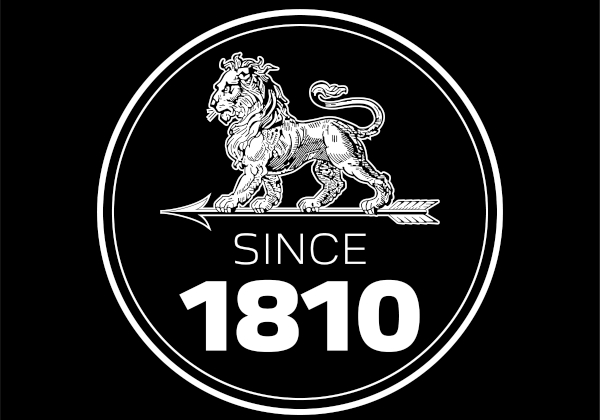
September marks 215 years of Peugeot; a marque which is known for its bold models and innovative engines. From humble beginnings to automotive dominance Peugeot has come a long way in 215 years.
Peugeot originally began in 1810 by brothers Jean-Pierre II and Jean-Frédéric Peugeot who diversified the family-run grain mill to start a steel foundry. Early products produced included steel hand tools, steel strips for dressmaking (Peugeot had produced 8.5 tonnes of steel crinolines by 1852), springs for watchmaking and coffee grinders.
215 Years of Peugeot – The Automotive Beginnings
Peugeot’s move to the automotive sector came in the 1880’s thanks to the inquisitive nature of Jean-Pierre’s Grandson, Armand Peugeot. Along with the help of designer Leon Sérpollet, Peugeot was able to showcase the first steam-driven three-wheeler vehicle at the World Fair in 1889.
Marking an era of new possibilities for Peugeot in 1896, the traditional and automotive manufacturing separated allowing each to continue to remain at the fore of their respective processes. By 1897, the first automotive plant was set up in Audincourt, with a second plant opening in Lille in 1912.
The Post-War Period
In 1921, Peugeot released the Peugeot 201, introducing a numbering system featuring a zero in the middle, to name its models; a naming system which continues to this day. After halts to production during the Second World War, Peugeot was able to launch its first unibody car, the 203, in 1948. The 203 is significant as it was the first Peugeot model manufactured at over half a million units.
A New Era of Automotive Production
New manufacturing techniques saw a dramatic change to car design in the early sixties with Peugeot launching the 404 Cabriolet. Kicking off Peugeot’s coupe-cabriolet tradition, the unique 404 Cabriolet was designed by Pininfarina. It remains a collector’s favourite to this day.
Other successes of the sixties include the Peugeot 504, named the ‘European Car of the Year’ in 1969. It is Peugeot’s longest-produced commercialised model with 3,700,000 rolled out until production ceased in 2006.
The Peugeot Société Anonyme (PSA) was founded in 1965 to ensure the continued progression of the Peugeot brand. Nine years later in 1974, Peugeot acquired a 38.2% share of Citroen. This share was swiftly increased to a share of 89.95% in 1976 with the creation of PSA Peugeot Citroen.
Style of the Seventies
Peugeot released the shortest four-door saloon in 1972 which measured just 3.58m and became an instant success with families. However, it was the elegance of the 604, Peugeot’s first six-cylinder saloon since the introduction of the 601, which gained the approval of a huge number of senior government officials across Europe. This helped to enhance the desirability of the Peugeot brand on an international platform.

The Eighties to the Noughties
The 1980s was a hugely noteworthy decade for Peugeot, thanks to the introduction of the iconic Peugeot 205. It went on to become a double World Rally Champion car and won two Paris-Dakar races. It remains one of the best-selling models in France of all time as well as one of the most exported French vehicles.
However, it was towards the end of the eighties, when Peugeot made headlines with the launch of the Peugeot 405, which was named ‘European Car of the Year’ shortly after its launch.
1997 saw the introduction of a new Peugeot model, the 406 Coupé. With timeless Pininfarina design, it continued the success of Peugeot’s coupé design while also capturing attention for being the first coupé built with a diesel engine.
As Peugeot moved into the nineties, the environmental impact of motoring reached higher prominence. As a result, Peugeot launched its new HDi diesel engines designed to reduce NOx emissions. This new HDi engine technology was followed later by the first particle filter which introduced in 2000 on the Peugeot 607.

2010 – 2020
With growing environmental concerns, 2011 saw Peugeot release the world’s first diesel-hybrid engine with a 35% reduction in consumption, CO2 emissions of just 99g and a zero-emissions mode.
Further engine innovation led to the Peugeot winning the ‘International Engine of the Year’ in 2015, 2016 and 2017 in the 1.0L to 1.4L category for the three-cylinder PureTech 1.2L turbo petrol engine.
More recent developments include Peugeot’s growth in the SUV sector to meet growing demand from customers. The result is Peugeot’s line-up offers something for every driving requirement be it a smart city car, a sporty saloon, a neat hatch or a stylish SUV.
Peugeot also has a vast assortment of awards under their belt. Notable within the past decade is the European Car of the Year Award, awarded for three vehicles, the International Van of the Year, in 2019, and the Car of the Year, on three accounts.
2020 Onwards
Looking at the current era of Peugeot and the future, we can expect to see even more innovation and changes when it comes to a wide range of vehicles.
A focus on electric and electrified cars will be prominent over the coming years, with recent updates on the new 5008’s powertrain. Peugeot is also implementing more plug-in hybrids, such as the 308 and 408.
Peugeot is adding to their commercial range too, alongside having facelifts which bring their vans into the modern age, including as much premium technology as they can fit. As such, expect to find new models and features over the coming years.
Offering a wide range of new vehicles, Peugeot still stands out when it comes to the automotive industry.
Peugeot Sport
Key to the success and popularity of Peugeot has undoubtedly been its prowess in motorsports. Way back in 1895, Peugeot was already making its mark by winning the World’s first timed race the Paris to Bordeaux to Paris rally with the Peugeot Type 7.
Peugeot’s subsequent success continued at the beginning of the twentieth century with the Peugeot L76 Series winning the French Grand Prix in 1912-1913 as well as international competitions including Indianapolis 500 in 1913, 1916 and 1919. Other notable successes include wins at the Le Mans 24 hour race, East African Safari Rally, Bandama Rally, Moroccan Rally and the Paris to Dakar race.
More recent successes for instance include setting a new record in 2013 at Pikes Peak with Sébastien Loeb, nine-times World Rally Championship (WRC) Champion behind the wheel of the Peugeot 208.
Following this in 2015, Peugeot won the World Rally Cross Championship, while 2017 was an impressive year thanks to a 1-2-3 podium finish for Peugeot in the Dakar for Stéphane Peterhansel, Sébastien Loeb and Cyril Despres who finished first, second and third respectively.

Peugeot Commercial
From its beginnings in the automotive sector, Peugeot has been keen to fulfil all needs, including the commercial sector. So it will come as no surprise to learn its van range has international renown for style, reliability, durability and impressive usability.
Production of commercial Peugeot vehicles began in 1895, with the Peugeot Type 13, Peugeot’s first delivery van. With a credible 500kg payload capacity it enabled speedier delivery of goods than the more mainstream systems of the time.
Diversification continued and in 1922, Peugeot began to introduce lighter utility vehicles taking inspiration from their established passenger models. While 1938 saw the introduction of tarpaulin-covered trucks which became highly desirable in rural areas.
A 1980 alliance between PSA and Fiat brought about a new era of Peugeot vans able to keep up with the more demanding nature of commercial motoring. 1994 saw the release of the iconic Boxer panel van, while 1996 saw the launch of the Partner van. Both vans remain Peugeot’s bestselling commercial vehicles today.
Modern-day Peugeot vans are making incredible leaps forward. From the features and practicality they offer to the electric systems driving them forward, there is more and more innovation happening each year.

The Peugeot Lion
The Lion has been an emblem of Peugeot since 1850, well before Peugeot began producing vehicles. Since then the iconic Lion has gone through various iterations, notably becoming the defining badge of Peugeot cars.
The previous version signified the power and dignity of this longstanding car manufacturer thanks to its overhaul in 2010 to mark Peugeot’s bicentenary year, something still shown in today’s design.
Featuring accelerated lines, and ready to roar with passion, the new Peugeot logo is inspired by the 1960s version, updated to express a more modern approach. This update happened in 2020, alongside quite a few facelifts for the Marques’s most popular models.
215 Years of Peugeot
To sum up, Peugeot has a longstanding history in manufacturing that has paved the way for its success in the automotive industry. 215 years of Peugeot has not dampened its innovative spirit which has helped it remains one of the leading innovators. Moreover, unlike many other large firms remains descendants of Peugeot still retain shareholder and managerial positions within the company with their dynamism and commitment spurring the company forwards.
Discover the Full Peugeot Range
Here at Stoneacre, we are proud to offer the entire Peugeot range at our dedicated Peugeot showrooms. As well as brand new Peugeot models, you can access nearly new Peugeot cars which have barely any miles on the clock as well as the highest quality used Peugeot cars for sale.
In addition, you can access many of our Peugeot models through Motability. Making Peugeot the ideal choice if you have additional motoring needs. While for those looking for a capable commercial model, we’re confident you won’t be disappointed by our outstanding commercial Peugeot van range.